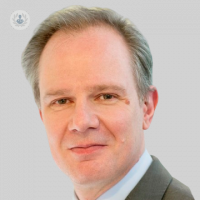How can sleep problems be managed?
Written in association with:Sleep problems affect millions of people worldwide, significantly impacting overall health and quality of life. Common sleep issues include insomnia, sleep apnoea, restless legs syndrome (RLS), and narcolepsy. Understanding these problems and learning how to manage them can help improve sleep quality and overall well-being, and here to provide an insightful guide about how to manage sleep problems is highly regarded consultant neurologist and sleep physician, Dr Oliver Bernath.

What causes sleep problems?
Several factors can contribute to sleep problems. Insomnia, characterised by difficulty falling or staying asleep, can result from stress, anxiety, depression, poor sleep habits, or medical conditions. Sleep apnoea, a condition where breathing repeatedly stops and starts during sleep, is often caused by obesity, smoking, or anatomical abnormalities.
RLS, involving uncomfortable sensations in the legs and an irresistible urge to move them, can be due to iron deficiency, pregnancy, or chronic diseases. Narcolepsy, a neurological disorder that affects the control of sleep and wakefulness, is thought to be related to genetic and environmental factors.
What are the symptoms of sleep problems?
Sleep problems manifest through various symptoms. Insomnia leads to fatigue, irritability, and difficulty concentrating. Sleep apnoea sufferers experience loud snoring, episodes of stopped breathing, and daytime drowsiness. RLS causes tingling, itching, or crawling sensations in the legs, especially at night. Narcolepsy is characterised by excessive daytime sleepiness, sudden loss of muscle tone (cataplexy), sleep paralysis, and hallucinations.
How are sleep problems diagnosed?
Diagnosing sleep problems involves a thorough medical evaluation. Doctors may conduct physical exams, review medical histories, and ask about sleep patterns. Sleep studies, like polysomnography, monitor various body functions during sleep to identify specific disorders. Questionnaires and sleep diaries can also help in diagnosing and understanding sleep problems.
How can sleep problems be managed?
Managing sleep problems often involves a combination of lifestyle changes, behavioural therapies, and medical treatments. For insomnia, maintaining a regular sleep schedule, creating a restful sleep environment, and practicing relaxation techniques can be beneficial. Continuous positive airway pressure (CPAP) devices are commonly used to treat sleep apnea by keeping airways open during sleep.
Iron supplements and medications can alleviate RLS symptoms. Narcolepsy management typically includes medications that regulate sleep-wake cycles and lifestyle adjustments like scheduled naps.
In addition to specific treatments, adopting general sleep hygiene practices can improve overall sleep quality. These include avoiding caffeine and heavy meals before bedtime, exercising regularly, and limiting screen time in the evening. Seeking professional help from a sleep specialist is crucial for persistent or severe sleep problems.


